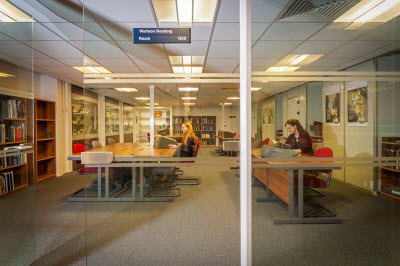Have you ever wondered what the Special Collections and Archives (SCA) team do behind-the-scenes? In the latest post in our series explaining just that, Thomas Chisholm talks about his role as a Library Assistant at Special Collections and Archives.
My role in Special Collections and Archives is primarily customer service facing; I help to run the Reading Room service alongside the Academic Services Librarian, and deal with enquiries we receive by email and over the phone. This aspect of my work means I get to directly observe the many and varied uses researchers find for our collections, which is always a fascinating part of the job.
Typically, when a researcher is interested in consulting material held in SCA they will use the Archive Catalogue or the Printed Books Catalogue to find specific items pertinent to their enquiry. By getting in contact via email or telephone we can then advise on the size of the request. More material means more appointments required to consult it all, we think that three archival boxes per two-hour slot are the right amount for most readers.
When booking appointments, readers can use the SCA booking form to request up to four slots per week. My job is then to retrieve the material before the appointment and have it prepared in the Reading Room, giving the reader the maximum amount of time for their research. Interacting with researchers daily means I get to know a great deal about how our collections are used, as well as the wide variety of people who come to view them. It is always a pleasure to hear from a visitor that the material they have been able to view in SCA will help with their research, whether that be anything from a personal family history to a PhD thesis.
Whilst the material requested by readers is as varied as the collections themselves, some items we often see in the Reading Room include volumes of the Guild Gazette of the University of Liverpool. This student-run publication has been a fascinating window into campus life since it was first published in 1937. Researchers often find it gives valuable insight into the views and reactions of the student body to key events in the history of the University, and as such one volume or another can often be found in use in the Reading Room.
Another such item is the Letters from Josephine Butler, a collection of correspondence written by the well-known Victorian social reformer. This material is primarily available in microfiche format due to the delicate nature of the original letters. Microfiche is a photographic film strip that holds material in miniature form and therefore must be viewed by researchers using a microfilm reader. Viewing these letters can often be a visitors first time using microfilm or microfiche and I always enjoy helping to demonstrate and teach the use of this technology.
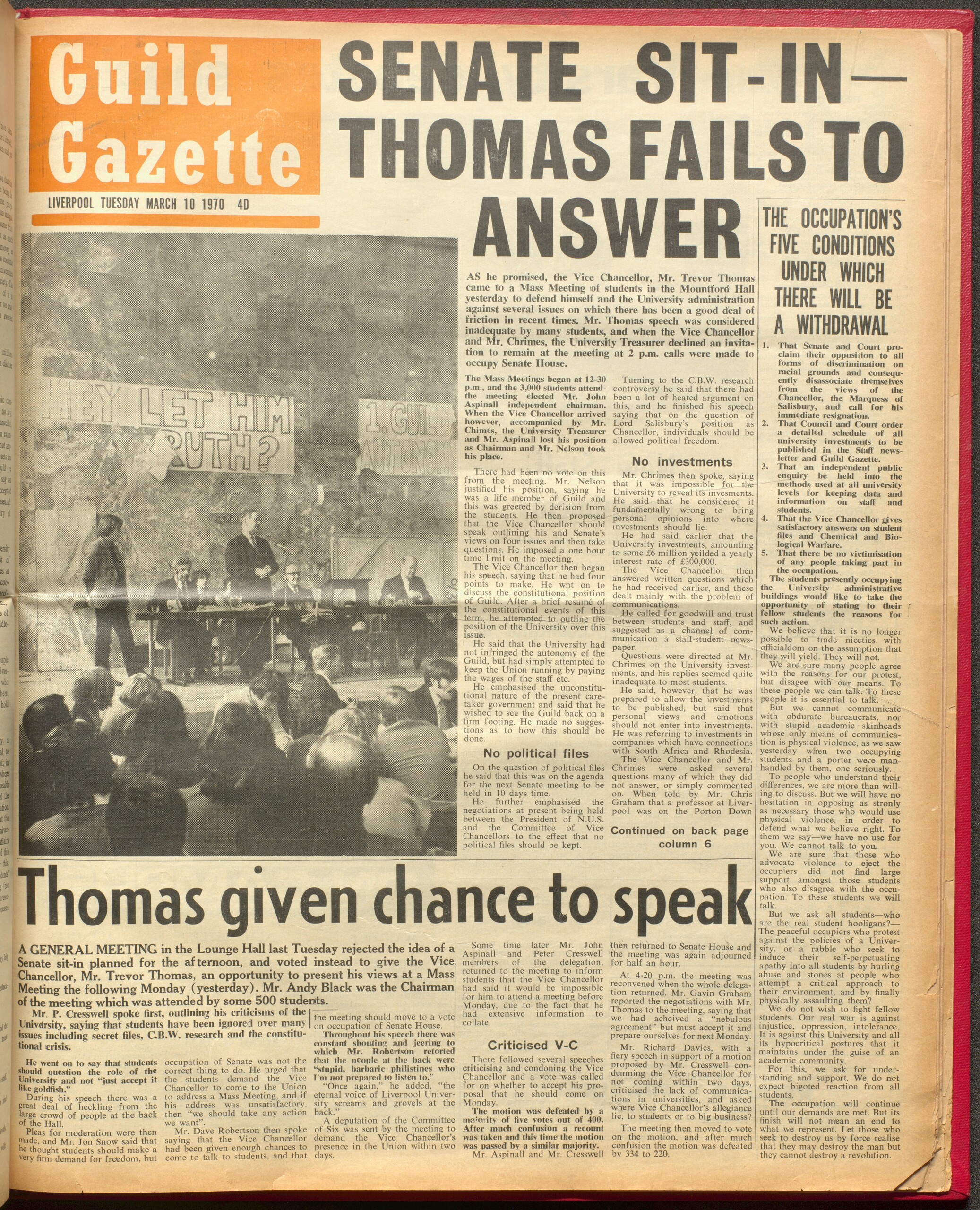
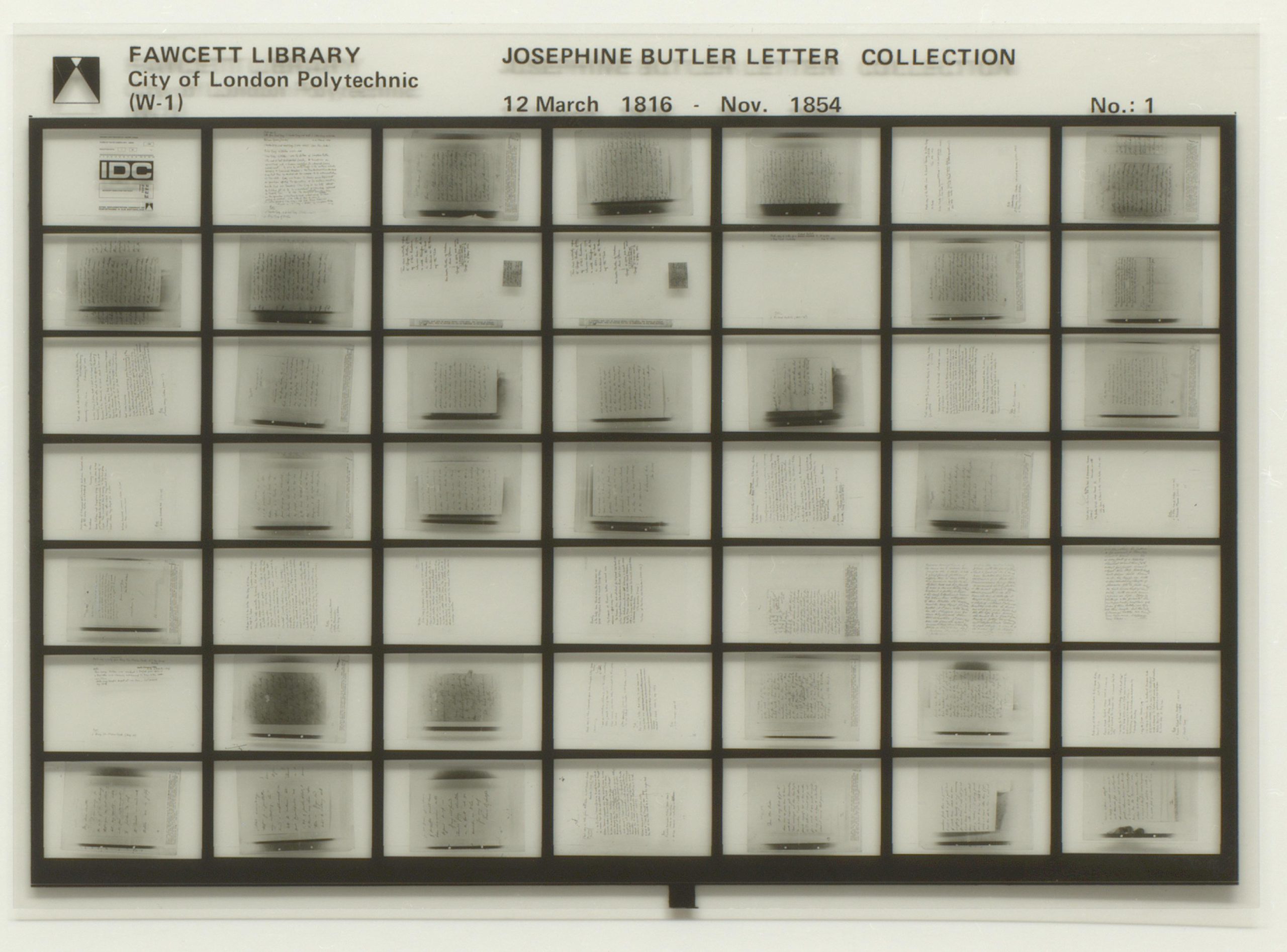
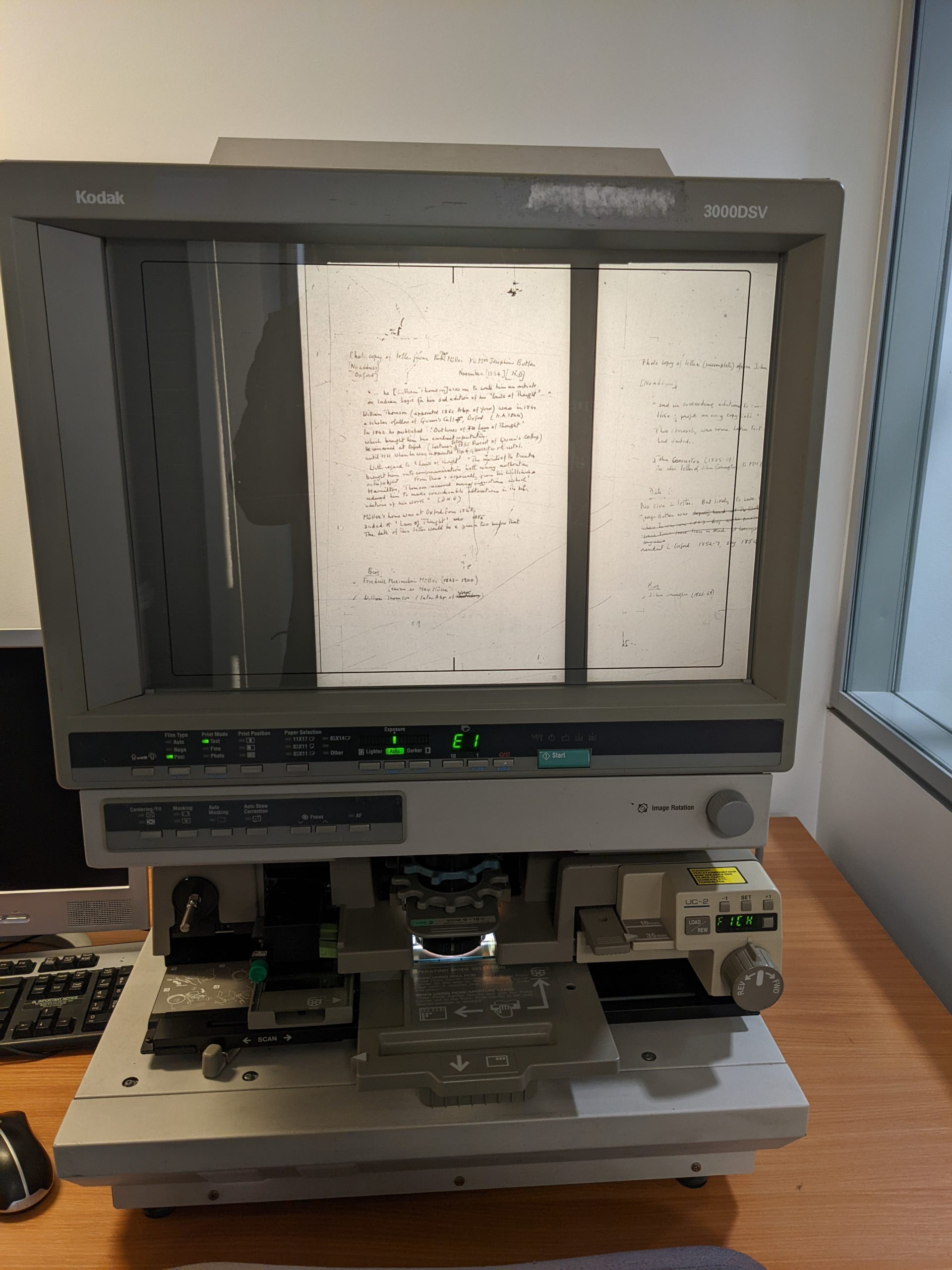
Sometimes, a researcher will have an enquiry for SCA but will be unable to visit in person. This is something that has become much more common since the pandemic began, and we will always try to help researchers with reasonable requests. Whilst we do not provide a research service ourselves, we are happy to undertake simple searches for those unable to visit in person. Undertaking research is personally my favourite part of my job role; it means I can engage directly with Special Collections and Archives material. It can be an enjoyable challenge at times, for example when an enquiry about a former graduate of the university involves an individual who is known by multiple names. This can make them difficult to find, and consequently even more satisfying when the research is successful.
Retrievals and returns are a great opportunity to broaden my knowledge of the material holdings of Special Collections and Archives. Retrievals refers to the process by which we bring material from the various archive and special collection storerooms in the Sydney Jones Library up to the Reading Room. This must be done in such as way that the material is not misplaced and can always be found. To achieve this, a paper record detailing where the material came from is always kept with the item when it isn’t in the Reading Room. Visitors to SCA may notice these green slips, and anyone lucky enough to work here will quickly become very familiar with them! The returns process is retrievals in reverse, accurately returning material to where we took it from.
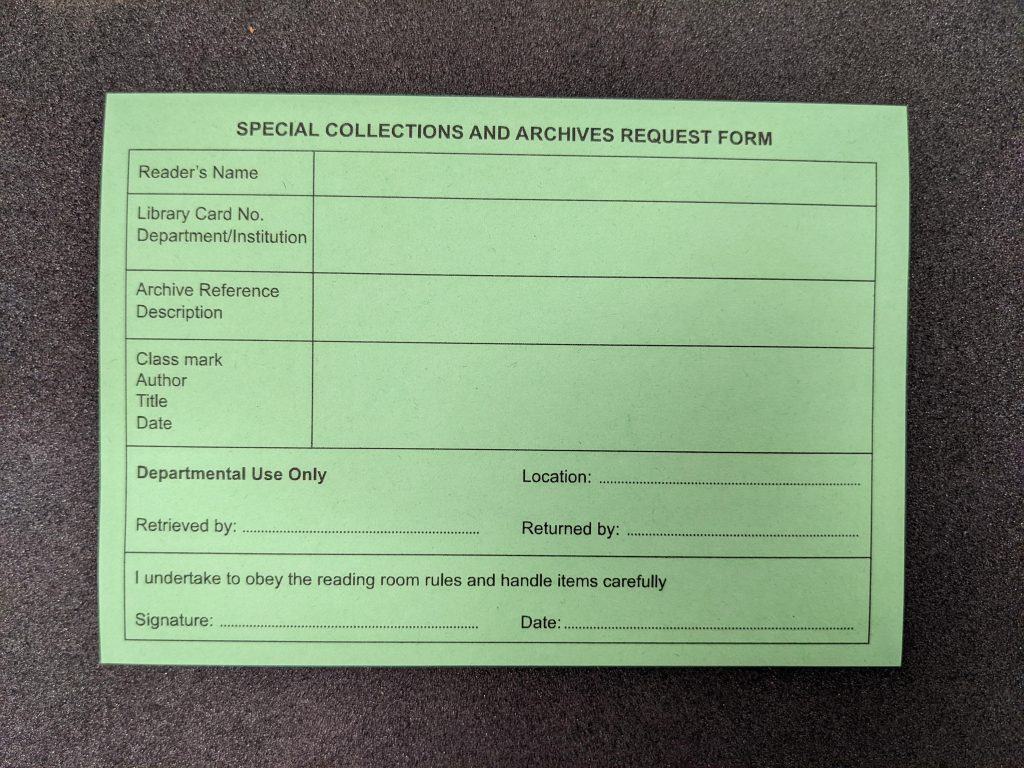
Whilst performing retrievals and returns in the stores, it can be easy to find other interesting material that you were not looking for, often in the same box as the item you came to retrieve. For example, this graduate index card confirming the award of an honorary degree to the Queen Mother, which I came across when searching records of past graduates on behalf of an enquirer. It’s not every day that you accidentally stumble across items relating to royalty, even in an archive.
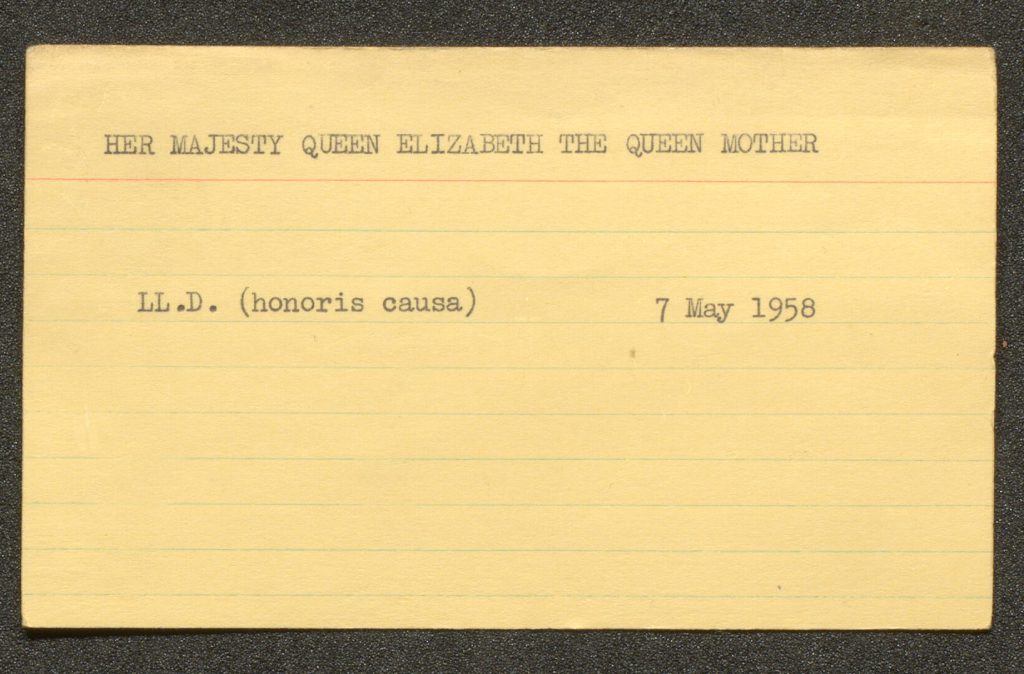
Special Collections and Archives can be reached by email at [email protected], and by telephone on 0151 794 2696. Appointments in the SCA Reading Room are by prior appointment, and more information on visiting and using can be found on the website.
By Thomas Chisholm (Library Assistant)
